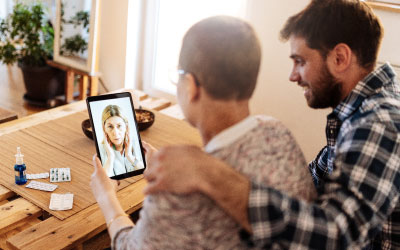Clinical Trials
Researchers create clinical trials to study the benefits and risks of potential treatments for all types of diseases and conditions. There may be one for your specific condition looking for participants right now, but first you may have some questions.
What is a clinical trial?
Clinical trials take years to plan. Researchers who design clinical trials must first understand how a particular condition affects the human body.
Researchers and developers use this insight to create new medical devices or drugs to target part of the disease process. These new treatments must be tested on people to see how well they work and how safe they are.
The United States Food and Drug Administration (FDA) uses a four-step process to assess new treatments before approving them as safe for public use.
Read more about how clinical trials work.
Clinical trials for leukemia
Learning about clinical trials for leukemia may provide you with more information about newly developing treatments. And participating in a clinical trial for leukemia may give you access to new and potentially better treatments.
Researchers are always looking for ways to improve leukemia treatments and to understand more about the disease. In the United States alone, hundreds of clinical trials are enrolling, recruiting, or waiting to recruit participants with leukemia.
Use the Online Clinical Trial Finder to find a clinical trial that matches your needs.
Deciding to participate in a clinical trial
Joining a clinical trial is a big decision. You should gather as much information as possible before making your final choice.
You may want to learn more about:
- Clinical trial questions to ask your doctor or the study team
- Clinical trial facts and myths to address any concerns you have about joining a study
- Diversity, equity, and inclusion in clinical trials
- Pros and cons of participating in clinical trials
- Steps taken to protect your safety and rights as a participant
- Financial and insurance considerations
Video resource
The webinar video, “Clinical Trials: A Guide for Leukemia Patients and Caregivers,” addresses how leukemia treatment has been changed by clinical trials, how clinical trials are developed, and factors to think about if you are considering a clinical trial. It is presented by Karen Carlson, MD, PhD, from Medical College of Wisconsin.



